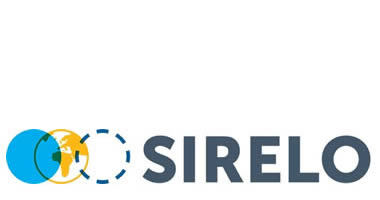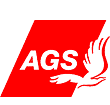Buying Property in Malta

Real Estate Agencies
Most property in Malta is sold and purchased through real estate agencies.
Major real estate agencies in Malta include Remax Malta, Dhalia, Simon Mamo, Sara Grech, Belair, and Frank Salt. You are not obligated to work with the first agent you contact if you are dissatisfied with his/her services or properties.
Real estate agents will assist you in finding a property to purchase. They will also organize and carry out property viewings, negotiate to obtain the best market price and payment terms, and draw up and negotiate a Preliminary Agreement of purchase that satisfies both seller and buyer.
Real estate fees are 3.5-5% in Malta, payable by the seller to the real estate agent. Real estate agents in Malta are not licensed.
Resale of property in Malta is allowed. Repatriation of full resale price, including profits, is allowed.
Maltese Real Estate Market
About one third of buyers in Malta are foreigners, most of these being EU citizens. The majority of EU buyers are British, but Malta also attracts a significant number of buyers from Italy, Germany, France, Spain, Holland, and Sweden. In recent years, buyers from the United States and the Middle East are also becoming more numerous.
While the housing market in Malta has been strong, prices have fallen about 15% recently due to the world economic crisis.
Property prices vary widely, depending on location, quality of finish, and age of property. Currently, the average is €1,500/square meter for a good-sized, well located flat and €2,500/square meter for a large detached house.
Some properties in Malta are sold fully furnished.
Buying Direct
Although uncommon, you can buy property directly from owners in Malta. To find properties for sale directly you can check the classified section of the Times of Malta newspaper (online or in print), or classifieds web sites such Malta Park and Izjed.com.
Regulations
If you are buying property in Malta as a second home, or if you are not an EU citizen, you may only purchase property above a certain value. You must also put down a higher deposit.
Foreigners can purchase property freely and easily in designated up-market areas, including Tigne Point, Pender Gardens, Tas-Sellum, Portomaso, Cottonera, and Manoel Island. However, certain foreigners purchasing property outside of these areas must apply for an AIP permit (see below).
Taxes
There are no wealth or property taxes in Malta, but there is a stamp duty of 5%
Income tax is charged where income is derived from renting out property. Foreign nationals pay a 15% income tax on rental income. Foreign nationals may only rent out specific types of property (e.g. villas with a pool valued over €250,000 to short-term renters only).
Mortgages
Mortgages are available for property purchase by non-residents or non-Maltese citizens residing in Malta. Expats must, however, obtain permission from the Central Bank of Malta before obtaining a mortgage in Malta.
Acquistion of Immovable Property (AIP) Permits
If you are a non-EU citizen, or if you are a EU citizen who has not lived in Malta continuously for more than five years and are purchasing a second (non-primary) residence, you must obtain an Acquisition of Immovable Property (AIP) permit to purchase property in Malta. AIP permits are granted by Malta’s Ministry of Finance. AIP permits cost €233. To obtain an AIP permit:
- Fill out an application form
- Produce a copy of the promise of sale or Preliminary Agreement of the property being acquired.
If you are a first time purchaser who is a non-resident of Malta you must also:
- Produce two passport sized photographs
- Produce a photocopy of the applicant’s passport
If you already own property in Malta you must also:
- Produce a copy of the deed of sale of previous property
Permits are generally issued within 6-8 weeks of application.
If you are a EU citizen purchasing a primary residence in Malta, or if you are a foreigner buying within a designated area, you do not require an AIP permit.
Purchase Process
Once you have found a property to purchase, and price and special conditions have been negotiated, an appointment is set up to sign a Preliminary Agreement. This binds the purchaser and the seller to conclude the transaction within an established date subject to a set of conditions. Preliminary Agreements are normally valid for three months, unless otherwise agreed upon.
Upon signing of a Preliminary Agreement you must pay a 10% deposit on the purchase price of the property. This is forfeited to the seller if the sale is not completed by the buyer without a legally valid reason.
Before you conclude the transaction, and after the signing of a Preliminary Agreement, a Notary verifies the legal title of the property (to ensure there are no outstanding debts, etc.). You may select a notary or your real estate agent can appoint one to you. You must also organize a bank loan (if applicable), have an architect check on building permits, and satisfy all other special conditions set out in the Preliminary Agreement. The seller will also complete their responsibilities as set out in the Preliminary Agreement, such as completion of building, renovations, etc. Once these tasks are complete, a date is set for the signing of the Final Deed.
You sign a Final Deed at a local bank’s legal office, at a real estate agency’s office, or at a Notary Public office. The final deed is read and agreed upon and final balances due must be paid accordingly (balance of the selling price, stamp duty of 5%, notary fees of 1%, etc.)
By Jess Gerrow, who traded city life in Canada for island life in the Mediterranean two years ago. She is a postgraduate marketing student, blogger, and freelance writer.
- My Life Abroad -
A selection of expat stories

"A fun compulsive read!"
J. Matcham, Amazon
"I strongly advise people ready to live abroad to read this book!"
Patrice, Amazon

 The procedures of buying and renting property in Malta
The procedures of buying and renting property in Malta Where to Live in Malta
Where to Live in Malta Renting Property in Malta
Renting Property in Malta
 AGS Worldwide Movers
AGS Worldwide Movers Fexco payment solutions
Fexco payment solutions 1stMove Car Shipping
1stMove Car Shipping Embassies and Consulates in Malta
Embassies and Consulates in Malta